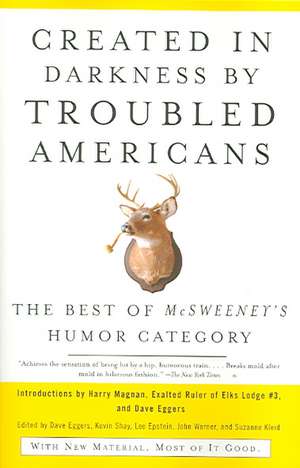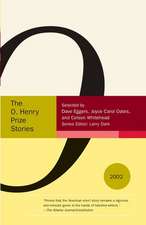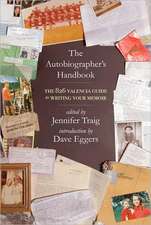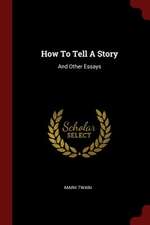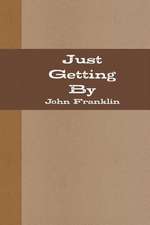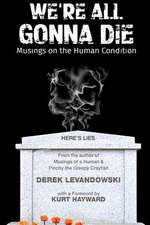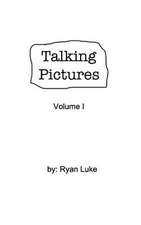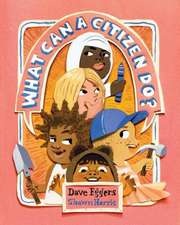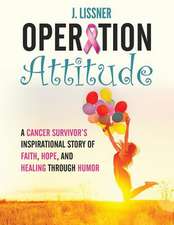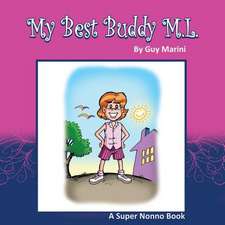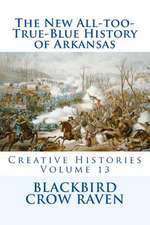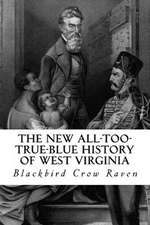Created in Darkness by Troubled Americans: The Best of McSweeney's Humor Category
Editat de Dave Eggersen Limba Engleză Paperback – 31 mai 2005
What can be done to stop this relentless march of drabbery? Nothing. But perhaps this book can be used to dull the pain. Included herein:
The Ten Worst Films of All Time, as Reviewed by Ezra Pound over Italian Radio
Unused Audio Commentary by Howard Zinn and Noam Chomsky, Recorded Summer 2002, for The Lord of the Rings: Fellowship of the Ring DVD (Platinum Series Extended Edition), Part One.
How Important Moments in My Life Would Have Been Different If I Was Shot in the Stomach
My Beard, Reviewed
Circumstances under Which I Would Have Sex with Some of My Fellow Jurors
Words That Would Make Nice Names for Babies, If It Weren't for Their Unsuitable Meanings
As a Porn Movie Titler, I May Lack Promise
Ineffective Ways to Subdue a Jaguar
Eleven Lunch Meats I Have Invented
Four Things I Would Have Said to Sylvia Plath if I Had Been Her Boyfriend
And much, much more, including 20 brilliant new lists . . .
Preț: 120.18 lei
Nou
Puncte Express: 180
Preț estimativ în valută:
23.00€ • 23.92$ • 19.28£
23.00€ • 23.92$ • 19.28£
Carte tipărită la comandă
Livrare economică 14-28 martie
Preluare comenzi: 021 569.72.76
Specificații
ISBN-13: 9781400076857
ISBN-10: 1400076854
Pagini: 272
Dimensiuni: 134 x 203 x 16 mm
Greutate: 0.2 kg
Editura: VINTAGE BOOKS
ISBN-10: 1400076854
Pagini: 272
Dimensiuni: 134 x 203 x 16 mm
Greutate: 0.2 kg
Editura: VINTAGE BOOKS
Notă biografică
McSweeney’s is a small group that sells taxidermy equipment and also produces books, a literary quarterly, and The Believer, a monthly review. Based in San Francisco, McSweeney’s is also home to 826 Valencia, a nonprofit educational center for Bay Area youth.
From the Hardcover edition.
From the Hardcover edition.
Extras
INTRODUCTION
From the beginning, McSweeney’s has brokered an awkward alliance between two opposing forces. On the one hand, the journal sought to publish experimental fiction and journalism; on the other hand, we hoped to make a home for stories that were funny without being humorous. Though our dream was that these two forces could act as one, as allies and not combatants, this dream was made of stone, or something like petrified wood. Then it turned to ashes. Yet before it turned to ashes it became embers, burning dimly, like a dying fire. Then, once it was ashes, we had no more hope for our dreams, for they were now ashen. Our dreams were no more. We had woken up from our dream, which was a flightless bird.
You have no doubt heard of the many battles, squabbles, fights, and slap-sessions between these two camps. Always this animosity was fueled by those who said that any possibility of peace between two opposites—serious fiction and less serious humor-type writing—was not only impossible, but perhaps not even possible. They said that humor writing should be on the back pages of magazines, and never over 800 words. They said that fiction should never allow one to laugh. And what did we say to that, after thinking about it for a few days and wishing we had had a quicker comeback? We said Nay! We said Nay, these things could coexist, and length need not be an object. Then we hedged a bit, and said, Length is an object, if said pieces are published on the Web, where reading at great length can cause eye strain. And thus was born the idea that sometimes McSweeney’s would publish funny things—sometimes in the journal, more often on the website—and that said publishing would not mean that McSweeney’s was always this thing or always that thing. We could publish both sorts of things, sometimes side by side, and often near articles about goats producing spider silk in their milk. But, we said, with heavy heart and fists of fury, we shall never publish poetry.
So then why, you ask—if our goal was to put these things together, less-serious and serious, to dignify one and undignify the other—have we made a collection only of the funny bits? Why remove the stars from the stripes, the Wynonna from the Ashley? The fault is theirs, the people of Denmark. And for this last insult we pledge eternal damnation upon the smug suckholes who call themselves Danes.
What you see here, friends, is some of the best writing our contributors have created while trying to be less serious and being paid very little or nothing. It will fill you with such joy that you may want to beat your head on a rock in the garden. We encourage you to do this, and to never stop dreaming, even if your dreams turn to birds which cannot fly, or which burn up in flight, as if hit by buckshot. Hunting is awesome.
Dave Eggers Editor, McSweeney’s CREATED IN DARKNESS BY TROUBLED AMERICANS
A BRIEF PARODY OF A TALK SHOW THAT FALLS APART ABOUT HALFWAY THROUGH
Tim Carvell [Busy music and a kaleidoscope of colorful graphics, which ultimately part to reveal an ecstatic audience consisting largely of middle-aged women, with some middle-aged men and college students thrown in.]
HOST
[standing in the audience, holding a fuzzy-headed, slightly oversized microphone]
Hello, and welcome back to our show. Our topic today is: “People Who Enjoy Being Verbally Abused by Talk-Show Audiences.” Now, before we went to the break, we were talking to Steve.
[Cut to Steve. He is around thirty-five, about forty pounds overweight, and wearing an unflattering sweater.] HOST
Now, Steve: Since you were a teenager, you’ve fantasized about being told off by a sassy woman holding a microphone. Is that right?
STEVE
[ashamed]
Yes. That’s right. It’s ruined many of my relationships: I can’t relate to women unless they have a microphone in their hand and are making disparaging comments about me, preferably in front of a large crowd. Some women tried to accommodate me for a while—we’d attend open-mic nights, high-school football games, companies’ annual meetings—any place where there was an audience and a mic, but after a while, none of them would be able to take it anymore.
HOST
Well, we have someone here who wants to comment on that.
SASSY LADY
Yeah, I just wanted to say that you’re sick. [Audience cheers.] What kind of a man does that to a woman? You need to get yourself some help.
HOST
Steve?
STEVE
[Looks pleased. Then ashamed. Then pleased.]
HOST
We have someone else here who’d like to make a comment. Yes, sir?
AUTHORIAL VOICE
Yeah, I think that this is pretty much a one-joke story.
HOST
True enough.
AUTHORIAL VOICE
So, you know, perhaps it could end now.
HOST
Seems fair enough to me.
[STEVE, HOST, SASSY LADY begin filing toward the exits of the studio, along with the rest of the audience.]
AUTHORIAL VOICE
You know, we don’t all have to get up and leave. The illusion that any of us actually exists—which was pretty shaky to begin with—has by now been fairly well destroyed. The story can now just end abruptly at any moment.
HOST
True enough. It could just end, cutting either one of us off in mid sen—
—tence.
AUTHORIAL VOICE
Hm. That’s odd. I thought it was going to end just then.
HOST
Yeah. Me too.
[They stand together, uncomfortably, awaiting the end of the story. A few minutes pass. Then centuries pass. Then a few more minutes. They turn into marvelous fire-breathing dragons, then into baby chicks. They turn one another inside out. They invent time travel, and prevent the assassination of Archduke Franz Ferdinand, only to discover that World War I was inevitable, and that nothing in the present day has changed. They introduce the unicorn to the rainforest. A few more centuries pass. They share a hard-boiled egg. Centuries, centuries. Millennia. The story, at long last, ends. No, wait—they also dive for undersea treasure!]
THE SPIRIT OF CHRISTMAS
Kurt Luchs
My dear Mr. Vanderwoude,
Thank you for your recent gift. Now once again as the holidays approach we ask you to remember the plight of the Bosnian and Serbian orphans. For many of these children there will be no Christmas—no presents, no toys, and worst of all no parents to love and protect them. We thank you for your past generosity and hope you will not forget these little ones as you enjoy the comfort and affluence of your safe, warm home during this joyous season.
Yours sincerely,
Kurt Luchs
P.S. Please accept the enclosed paper Christmas wreath, hand-constructed by seven-year-old burn victim Susie, and hang it on your tree. I trust you’ll think of the orphans whenever you look at it.
´ ´ ´
Dear Mr. Vanderwoude,
If this letter happens to cross yours in the mail, please forgive me; I know the post office is slow and unreliable during the Christmas rush. I’m sure you received my last letter and that your generous gift is already on its way to help the homeless orphans of war-torn Bosnia-Herzegovina. But just in case our letter—or even yours, God forbid—might have gone astray, I’m sending this reminder to thank you for what you have already done and to ask if you can find it in your heart to do just a little bit more this Christmas.
Yours sincerely,
Kurt Luchs
P.S. The attached miniature pinecone, painted holiday green and dipped in glitter, was brought back from the former war zone in the tattered coat pocket of a little boy we call Buster. Enjoy.
´ ´ ´
Dear Mr. Vanderwoude,
I’ll admit I’m puzzled. Surely you must have received my previous letters asking you to add just a little holiday cheer to the lives of our orphaned Bosnian and Serbian boys and girls. And surely you cannot be unmoved by their tragic plight—after all, you made a significant contribution to our cause only a few months ago. Perhaps you yourself have faced unfortunate circumstances recently—a long illness, the loss of a job, or even the loss of a loved one. If so, I offer you my deepest, most heartfelt sympathy, and I look forward to hearing from you in the near future when things are going better for you.
But if you are not facing hard times, Mr. Vanderwoude, if what you suffer from is merely a hard heart … God help you, Mr. Vanderwoude.
Yours,
Kurt Luchs
P.S. The enclosed sketch of the dove of peace was done by little Amalric, a paraplegic war orphan who has learned to draw by holding a piece of charcoal between his teeth. I hope it fills you with the generous spirit of Christmas.
´ ´ ´
Mr. Vanderwoude,
As I write this, the orphans are weeping. I had to tell them that there would be no toys this Christmas, that they might not even have a roof over their heads come December 25th. “Why?” they cried. “Because a man named Richard Vanderwoude has apparently decided that your unimaginable pain doesn’t matter,” I said. “Because he has put his own selfish whims and desires above your basic needs. Because he thinks you are not worth saving.” At that point I had to restrain one of the children, Tedescu, from leaping through a plate-glass window.
How can I be so sure of your lack of charity? You see, Mr. Vanderwoude, I did a little checking around. I found that you are not sick, that none of your friends or loved ones have died recently, and that you have not only not been fired but have received a substantial raise and promotion in the past few months.
I am not enclosing a postpaid return envelope with this letter because if you do decide to melt your icy heart and send a donation (which I doubt), I think it appropriate that you should pick up the tab.
Yours,
Kurt Luchs
P.S. The enclosed finger painting portrait of you (you’re the one with the fangs) is by Lisel, an eight-year-old deaf-mute. The bright object underneath you is either a holiday candle or the flames of Hell. Of course, we can’t ask Lisel, can we?
´ ´ ´
Mr. Vanderwoude,
If you think you can escape the consequences of your evil actions (or rather, inactions) you are wrong. You will pay. I will see to it personally. And I’ll have lots of help. You forget, Mr. Vanderwoude, that these are Bosnian and Serbian orphans. They have been handling firearms and explosives since they were two. They are really pissed off at the world and don’t know who to blame, but you make a very plausible target. We know where you live.
Kurt Luchs
P.S. The fiery red composition I’ve attached to this letter is the joint effort of Tommy and Tony, identical twins who have sworn a sacred blood oath (that’s their blood on the paper) not to rest until they have taken vengeance upon you. The artwork depicts your head as it would look after a losing encounter with a fragmentation grenade—a picture I hope to see someday in real life.
´ ´ ´
O Ricky boy,
You’ve really done it now, mister. I heard the cops coming up the stairs and managed to hide in an air vent while they ransacked my office. After they left I took the few weapons they had missed, stuffed my remaining files into a briefcase, and then torched the place.
So now you know there are no orphans—Bosnian, Serbian, or Martian. But that doesn’t let you off the hook, Rick. Not by a long shot. If there had been any orphans, they would have been just as hungry and hopeless as my letters made out, and you’d be just as guilty. Oh no, Vanderwoude, you aren’t out of the woods yet. Because no matter where you go or how much police protection they give your worthless ass, I’ll find you, I’ll hunt you down like a dog and show you ethnic cleansing like you’ve never seen before.
If I were you I’d start drinking gallon jugs of double espresso right now and make plans to never, ever go to sleep again. Better install rearview mirrors on your glasses, too. Wherever you are, I’ll be right behind you.
Kurt Luchs
P.S. Enclosed is an artist’s rendering of the place I’d most like to visit on this earth: your grave.
THE BRIEFING: A PLAY IN ONE ACT
Stuart Wade SPOKESPERSON
We all know that there’s a specific piece of information in question here. And with regard to it, let me first state that I know you all would like for me to say what we all think I’m coming before you to say. I would like to make it very clear, however, that I do not intend to say it. In addition, I will neither confirm nor deny it. So now that we all understand each other, are there any questions?
REPORTER ONE
Will you say what we want you to say?
SPOKESPERSON
Not exactly as you would have me say it. [Pointing to REPORTER TWO] Yes—over there?
REPORTER TWO
Is the thing we all want you to say, in fact, true?
SPOKESPERSON
I’m not saying if it is or it isn’t. It would be premature to judge that.
REPORTER THREE
Since you’re not saying the precise thing we all want you to say, will you say it, but in a slightly different way?
SPOKESPERSON
You mean in a way that would have the same meaning as the way you would all want me to say it?
REPORTER THREE
That is correct.
SPOKESPERSON
I’m not prepared at this time to do that. [Making eye contact with REPORTER FOUR] Yes?
REPORTER FOUR
If you won’t say what we all would like you to say, or if you won’t say it in a slightly different way, will you at least say one or a couple of parts of what we all want you to say?
SPOKESPERSON
If there is a situation where it would become prudent for me to say part or parts of what you all want me to say, I would, yes. But now is not the time.
REPORTER FIVE
When will it be time?
SPOKESPERSON
I don’t know the answer to that. I wanted to add something at this point, before we continue. There are some people involved behind the scenes with this thing who deserve to be recognized for all their hard work. This thing has been a team effort all the way, and thanks to them, a real win-win situation as well. [Pointing to REPORTER SIX] Yes, go ahead.
REPORTER SIX
This information that we all want you to disclose—might one of us be able to trick you into divulging what we all want you to say?
SPOKESPERSON
If I am slow-witted at that moment, or if I’m not being too careful in choosing my words right then, and if one of you people displays extremely shrewd questioning skills, then yes, it is possible. [Shielding his eyes] Yes—all the way in the back there … you, Miss.
REPORTER SEVEN
I think I know the information we all want you to say but that you aren’t saying, and here it is. [She says something inaudible] Isn’t that right?
SPOKESPERSON
[Angrily] Do you expect me to answer that? Next question.
REPORTER EIGHT
When can we expect you to say what we all want you to say?
SPOKESPERSON
Relatively soon.
REPORTER EIGHT
Can you be more specific?
SPOKESPERSON
Well, we are expediting this process, so I would imagine sooner than you might think, but I don’t want to mislead any of you as to exactly when. [Indicating silver-haired woman seated in front row of media] Yes, Helen?
REPORTER NINE
I heard some experts giving their opinions about the information we all want you to say. Can you respond to these expert comments?
SPOKESPERSON
Well, I can’t speculate on others’ comments. And I’m not an expert. [Looks up to assembled throng] I have time for one more question. In the middle there, yes—you sir? [Points to bearded man standing in center of group]
REPORTER TEN
Might I interject a witty comment at this juncture to break up the tension? [Says something inaudible]
[Everyone laughs]
Curtain. ON THE IMPLAUSIBILITY OF THE DEATH STAR’S TRASH COMPACTOR
J. M. Tyree I maintain that the trash compactor on board the Death Star in Star Wars is implausible, unworkable, and, moreover, inefficient.
The Trash Compactor Debate turns on whether the Death Star ejects its trash into space. I, for one, believe it does. Though we never see the Death Star ejecting its trash, we do see another Empire ship, the so-called Star Destroyer, ejecting its trash into space. I therefore see no reason to suspect that Empire protocol dictating that trash be ejected into space would not apply equally to all Empire spacecraft, including the Death Star.
The Death Star clearly has a garbage-disposal problem. Given its size and massive personnel, the amount of waste it generates—discarded food, broken equipment, excrement, and the like—boggles the imagination. That said, I just cannot fathom how an organization as ruthless and efficiently run as the Empire would have signed off on such a dangerous, unsanitary, and shoddy garbage disposal system as the one depicted in the movie.
Here are the problems, as I can ascertain them, with the Death Star’s garbage-disposal system:
1. Ignoring the question of how Princess Leia could possibly know where the trash compactor is, or that the vent she blasts open leads to a good hiding place for the rescue crew, why are there vents leading down there at all? Would not vents leading into any garbage-disposal system allow the fetid smell of rotting garbage, spores, molds, etc., to seep up into the rest of the Death Star? Would not it have been more prudent for the designers of the Death Star to opt for a closed system, like a septic tank?
2. Why do both walls of the trash compactor move toward each other, rather than employing a one-movable-wall system that would thus rely on the anchored stability, to say nothing of the strength, of the other, nonmoving wall, to crush trash more effectively?
3. Why does the trash compactor compact trash so slowly, and with such difficulty, once the resistance of a thin metal rod is introduced? Surely metal Death Star pieces are among the main items of trash in need of compacting. It thus stands to reason that the trash compactor should have been better designed to handle the problem of a skinny piece of metal. (And while I hate to be the sort of person who says I told you so, I’d be remiss if I didn’t point out that a one-movable-wall system would have improved performance.)
4. Why does the trash compactor only compact trash sideways? Once ejected into space, wouldn’t the flattened, living-room-sized, and extremely solid panes of trash that result from such a primitive, unidirectional trash compactor pose serious hazards for Empire starships in the vicinity?
5. And what of the creature that lives in the trash compactor? Presumably, the creature survives because the moving walls do not extend all the way to the floor of the room, where the liquid is. After all, if the walls reached the floor, the creature would be killed each time trash is compacted. The design employed on the Death Star must allow the organic trash to filter down to the bottom, where the parasitic worm-creature devours it. But what happens when heavier pieces of non-organic trash fall down there? Would such trash not get wedged under the doors, causing them to malfunction? Do storm troopers have to confront the creature each time they retrieve pieces of uncompacted trash?
6. Why not have separate systems for organic and inorganic waste, thus allowing full compaction of the inorganics and a closed sanitary system for the organics?
7. Why does the Empire care, anyway, about reducing its organic garbage output? Are we to believe that the architects of the Death Star, a group of individuals bent on controlling the entire known universe, are also concerned about environmental issues? Would organic garbage rot in space? So what? Furthermore, why has the Empire gone to the trouble of acquiring a frightening parasitic worm-creature and having it eat all organic trash, especially given the aforementioned flaws in the design of the compactor and overall maintenance hassles?
8. Personally, were it up to me, I would have designed special garbage ships instead of employing a crude, cumbersome, and inefficient (to say nothing of unsanitary) compactor-worm combo to deal with the trash.
9. If the Empire insists on ejecting trash into space, why bother compacting it? Space is infinite, is it not? In such an environment, it hardly matters what size the trash is. In fact, a persuasive argument can be made that it’s actually better for the trash to take up more space, so that it appears on radar systems as something for Empire ships to avoid. Compacted trash creates smaller chunks of harder trash that would undoubtedly cause serious damage to Empire starships. And needless to say, damage to starships would, in turn, create yet more hassles and headaches for the Empire.
Please understand, gentle reader, I am all for creating hassles and headaches for the Empire. I just doubt that the Empire would have created so many for itself. q.e.d.
From the Hardcover edition.
From the beginning, McSweeney’s has brokered an awkward alliance between two opposing forces. On the one hand, the journal sought to publish experimental fiction and journalism; on the other hand, we hoped to make a home for stories that were funny without being humorous. Though our dream was that these two forces could act as one, as allies and not combatants, this dream was made of stone, or something like petrified wood. Then it turned to ashes. Yet before it turned to ashes it became embers, burning dimly, like a dying fire. Then, once it was ashes, we had no more hope for our dreams, for they were now ashen. Our dreams were no more. We had woken up from our dream, which was a flightless bird.
You have no doubt heard of the many battles, squabbles, fights, and slap-sessions between these two camps. Always this animosity was fueled by those who said that any possibility of peace between two opposites—serious fiction and less serious humor-type writing—was not only impossible, but perhaps not even possible. They said that humor writing should be on the back pages of magazines, and never over 800 words. They said that fiction should never allow one to laugh. And what did we say to that, after thinking about it for a few days and wishing we had had a quicker comeback? We said Nay! We said Nay, these things could coexist, and length need not be an object. Then we hedged a bit, and said, Length is an object, if said pieces are published on the Web, where reading at great length can cause eye strain. And thus was born the idea that sometimes McSweeney’s would publish funny things—sometimes in the journal, more often on the website—and that said publishing would not mean that McSweeney’s was always this thing or always that thing. We could publish both sorts of things, sometimes side by side, and often near articles about goats producing spider silk in their milk. But, we said, with heavy heart and fists of fury, we shall never publish poetry.
So then why, you ask—if our goal was to put these things together, less-serious and serious, to dignify one and undignify the other—have we made a collection only of the funny bits? Why remove the stars from the stripes, the Wynonna from the Ashley? The fault is theirs, the people of Denmark. And for this last insult we pledge eternal damnation upon the smug suckholes who call themselves Danes.
What you see here, friends, is some of the best writing our contributors have created while trying to be less serious and being paid very little or nothing. It will fill you with such joy that you may want to beat your head on a rock in the garden. We encourage you to do this, and to never stop dreaming, even if your dreams turn to birds which cannot fly, or which burn up in flight, as if hit by buckshot. Hunting is awesome.
Dave Eggers Editor, McSweeney’s CREATED IN DARKNESS BY TROUBLED AMERICANS
A BRIEF PARODY OF A TALK SHOW THAT FALLS APART ABOUT HALFWAY THROUGH
Tim Carvell [Busy music and a kaleidoscope of colorful graphics, which ultimately part to reveal an ecstatic audience consisting largely of middle-aged women, with some middle-aged men and college students thrown in.]
HOST
[standing in the audience, holding a fuzzy-headed, slightly oversized microphone]
Hello, and welcome back to our show. Our topic today is: “People Who Enjoy Being Verbally Abused by Talk-Show Audiences.” Now, before we went to the break, we were talking to Steve.
[Cut to Steve. He is around thirty-five, about forty pounds overweight, and wearing an unflattering sweater.] HOST
Now, Steve: Since you were a teenager, you’ve fantasized about being told off by a sassy woman holding a microphone. Is that right?
STEVE
[ashamed]
Yes. That’s right. It’s ruined many of my relationships: I can’t relate to women unless they have a microphone in their hand and are making disparaging comments about me, preferably in front of a large crowd. Some women tried to accommodate me for a while—we’d attend open-mic nights, high-school football games, companies’ annual meetings—any place where there was an audience and a mic, but after a while, none of them would be able to take it anymore.
HOST
Well, we have someone here who wants to comment on that.
SASSY LADY
Yeah, I just wanted to say that you’re sick. [Audience cheers.] What kind of a man does that to a woman? You need to get yourself some help.
HOST
Steve?
STEVE
[Looks pleased. Then ashamed. Then pleased.]
HOST
We have someone else here who’d like to make a comment. Yes, sir?
AUTHORIAL VOICE
Yeah, I think that this is pretty much a one-joke story.
HOST
True enough.
AUTHORIAL VOICE
So, you know, perhaps it could end now.
HOST
Seems fair enough to me.
[STEVE, HOST, SASSY LADY begin filing toward the exits of the studio, along with the rest of the audience.]
AUTHORIAL VOICE
You know, we don’t all have to get up and leave. The illusion that any of us actually exists—which was pretty shaky to begin with—has by now been fairly well destroyed. The story can now just end abruptly at any moment.
HOST
True enough. It could just end, cutting either one of us off in mid sen—
—tence.
AUTHORIAL VOICE
Hm. That’s odd. I thought it was going to end just then.
HOST
Yeah. Me too.
[They stand together, uncomfortably, awaiting the end of the story. A few minutes pass. Then centuries pass. Then a few more minutes. They turn into marvelous fire-breathing dragons, then into baby chicks. They turn one another inside out. They invent time travel, and prevent the assassination of Archduke Franz Ferdinand, only to discover that World War I was inevitable, and that nothing in the present day has changed. They introduce the unicorn to the rainforest. A few more centuries pass. They share a hard-boiled egg. Centuries, centuries. Millennia. The story, at long last, ends. No, wait—they also dive for undersea treasure!]
THE SPIRIT OF CHRISTMAS
Kurt Luchs
My dear Mr. Vanderwoude,
Thank you for your recent gift. Now once again as the holidays approach we ask you to remember the plight of the Bosnian and Serbian orphans. For many of these children there will be no Christmas—no presents, no toys, and worst of all no parents to love and protect them. We thank you for your past generosity and hope you will not forget these little ones as you enjoy the comfort and affluence of your safe, warm home during this joyous season.
Yours sincerely,
Kurt Luchs
P.S. Please accept the enclosed paper Christmas wreath, hand-constructed by seven-year-old burn victim Susie, and hang it on your tree. I trust you’ll think of the orphans whenever you look at it.
´ ´ ´
Dear Mr. Vanderwoude,
If this letter happens to cross yours in the mail, please forgive me; I know the post office is slow and unreliable during the Christmas rush. I’m sure you received my last letter and that your generous gift is already on its way to help the homeless orphans of war-torn Bosnia-Herzegovina. But just in case our letter—or even yours, God forbid—might have gone astray, I’m sending this reminder to thank you for what you have already done and to ask if you can find it in your heart to do just a little bit more this Christmas.
Yours sincerely,
Kurt Luchs
P.S. The attached miniature pinecone, painted holiday green and dipped in glitter, was brought back from the former war zone in the tattered coat pocket of a little boy we call Buster. Enjoy.
´ ´ ´
Dear Mr. Vanderwoude,
I’ll admit I’m puzzled. Surely you must have received my previous letters asking you to add just a little holiday cheer to the lives of our orphaned Bosnian and Serbian boys and girls. And surely you cannot be unmoved by their tragic plight—after all, you made a significant contribution to our cause only a few months ago. Perhaps you yourself have faced unfortunate circumstances recently—a long illness, the loss of a job, or even the loss of a loved one. If so, I offer you my deepest, most heartfelt sympathy, and I look forward to hearing from you in the near future when things are going better for you.
But if you are not facing hard times, Mr. Vanderwoude, if what you suffer from is merely a hard heart … God help you, Mr. Vanderwoude.
Yours,
Kurt Luchs
P.S. The enclosed sketch of the dove of peace was done by little Amalric, a paraplegic war orphan who has learned to draw by holding a piece of charcoal between his teeth. I hope it fills you with the generous spirit of Christmas.
´ ´ ´
Mr. Vanderwoude,
As I write this, the orphans are weeping. I had to tell them that there would be no toys this Christmas, that they might not even have a roof over their heads come December 25th. “Why?” they cried. “Because a man named Richard Vanderwoude has apparently decided that your unimaginable pain doesn’t matter,” I said. “Because he has put his own selfish whims and desires above your basic needs. Because he thinks you are not worth saving.” At that point I had to restrain one of the children, Tedescu, from leaping through a plate-glass window.
How can I be so sure of your lack of charity? You see, Mr. Vanderwoude, I did a little checking around. I found that you are not sick, that none of your friends or loved ones have died recently, and that you have not only not been fired but have received a substantial raise and promotion in the past few months.
I am not enclosing a postpaid return envelope with this letter because if you do decide to melt your icy heart and send a donation (which I doubt), I think it appropriate that you should pick up the tab.
Yours,
Kurt Luchs
P.S. The enclosed finger painting portrait of you (you’re the one with the fangs) is by Lisel, an eight-year-old deaf-mute. The bright object underneath you is either a holiday candle or the flames of Hell. Of course, we can’t ask Lisel, can we?
´ ´ ´
Mr. Vanderwoude,
If you think you can escape the consequences of your evil actions (or rather, inactions) you are wrong. You will pay. I will see to it personally. And I’ll have lots of help. You forget, Mr. Vanderwoude, that these are Bosnian and Serbian orphans. They have been handling firearms and explosives since they were two. They are really pissed off at the world and don’t know who to blame, but you make a very plausible target. We know where you live.
Kurt Luchs
P.S. The fiery red composition I’ve attached to this letter is the joint effort of Tommy and Tony, identical twins who have sworn a sacred blood oath (that’s their blood on the paper) not to rest until they have taken vengeance upon you. The artwork depicts your head as it would look after a losing encounter with a fragmentation grenade—a picture I hope to see someday in real life.
´ ´ ´
O Ricky boy,
You’ve really done it now, mister. I heard the cops coming up the stairs and managed to hide in an air vent while they ransacked my office. After they left I took the few weapons they had missed, stuffed my remaining files into a briefcase, and then torched the place.
So now you know there are no orphans—Bosnian, Serbian, or Martian. But that doesn’t let you off the hook, Rick. Not by a long shot. If there had been any orphans, they would have been just as hungry and hopeless as my letters made out, and you’d be just as guilty. Oh no, Vanderwoude, you aren’t out of the woods yet. Because no matter where you go or how much police protection they give your worthless ass, I’ll find you, I’ll hunt you down like a dog and show you ethnic cleansing like you’ve never seen before.
If I were you I’d start drinking gallon jugs of double espresso right now and make plans to never, ever go to sleep again. Better install rearview mirrors on your glasses, too. Wherever you are, I’ll be right behind you.
Kurt Luchs
P.S. Enclosed is an artist’s rendering of the place I’d most like to visit on this earth: your grave.
THE BRIEFING: A PLAY IN ONE ACT
Stuart Wade SPOKESPERSON
We all know that there’s a specific piece of information in question here. And with regard to it, let me first state that I know you all would like for me to say what we all think I’m coming before you to say. I would like to make it very clear, however, that I do not intend to say it. In addition, I will neither confirm nor deny it. So now that we all understand each other, are there any questions?
REPORTER ONE
Will you say what we want you to say?
SPOKESPERSON
Not exactly as you would have me say it. [Pointing to REPORTER TWO] Yes—over there?
REPORTER TWO
Is the thing we all want you to say, in fact, true?
SPOKESPERSON
I’m not saying if it is or it isn’t. It would be premature to judge that.
REPORTER THREE
Since you’re not saying the precise thing we all want you to say, will you say it, but in a slightly different way?
SPOKESPERSON
You mean in a way that would have the same meaning as the way you would all want me to say it?
REPORTER THREE
That is correct.
SPOKESPERSON
I’m not prepared at this time to do that. [Making eye contact with REPORTER FOUR] Yes?
REPORTER FOUR
If you won’t say what we all would like you to say, or if you won’t say it in a slightly different way, will you at least say one or a couple of parts of what we all want you to say?
SPOKESPERSON
If there is a situation where it would become prudent for me to say part or parts of what you all want me to say, I would, yes. But now is not the time.
REPORTER FIVE
When will it be time?
SPOKESPERSON
I don’t know the answer to that. I wanted to add something at this point, before we continue. There are some people involved behind the scenes with this thing who deserve to be recognized for all their hard work. This thing has been a team effort all the way, and thanks to them, a real win-win situation as well. [Pointing to REPORTER SIX] Yes, go ahead.
REPORTER SIX
This information that we all want you to disclose—might one of us be able to trick you into divulging what we all want you to say?
SPOKESPERSON
If I am slow-witted at that moment, or if I’m not being too careful in choosing my words right then, and if one of you people displays extremely shrewd questioning skills, then yes, it is possible. [Shielding his eyes] Yes—all the way in the back there … you, Miss.
REPORTER SEVEN
I think I know the information we all want you to say but that you aren’t saying, and here it is. [She says something inaudible] Isn’t that right?
SPOKESPERSON
[Angrily] Do you expect me to answer that? Next question.
REPORTER EIGHT
When can we expect you to say what we all want you to say?
SPOKESPERSON
Relatively soon.
REPORTER EIGHT
Can you be more specific?
SPOKESPERSON
Well, we are expediting this process, so I would imagine sooner than you might think, but I don’t want to mislead any of you as to exactly when. [Indicating silver-haired woman seated in front row of media] Yes, Helen?
REPORTER NINE
I heard some experts giving their opinions about the information we all want you to say. Can you respond to these expert comments?
SPOKESPERSON
Well, I can’t speculate on others’ comments. And I’m not an expert. [Looks up to assembled throng] I have time for one more question. In the middle there, yes—you sir? [Points to bearded man standing in center of group]
REPORTER TEN
Might I interject a witty comment at this juncture to break up the tension? [Says something inaudible]
[Everyone laughs]
Curtain. ON THE IMPLAUSIBILITY OF THE DEATH STAR’S TRASH COMPACTOR
J. M. Tyree I maintain that the trash compactor on board the Death Star in Star Wars is implausible, unworkable, and, moreover, inefficient.
The Trash Compactor Debate turns on whether the Death Star ejects its trash into space. I, for one, believe it does. Though we never see the Death Star ejecting its trash, we do see another Empire ship, the so-called Star Destroyer, ejecting its trash into space. I therefore see no reason to suspect that Empire protocol dictating that trash be ejected into space would not apply equally to all Empire spacecraft, including the Death Star.
The Death Star clearly has a garbage-disposal problem. Given its size and massive personnel, the amount of waste it generates—discarded food, broken equipment, excrement, and the like—boggles the imagination. That said, I just cannot fathom how an organization as ruthless and efficiently run as the Empire would have signed off on such a dangerous, unsanitary, and shoddy garbage disposal system as the one depicted in the movie.
Here are the problems, as I can ascertain them, with the Death Star’s garbage-disposal system:
1. Ignoring the question of how Princess Leia could possibly know where the trash compactor is, or that the vent she blasts open leads to a good hiding place for the rescue crew, why are there vents leading down there at all? Would not vents leading into any garbage-disposal system allow the fetid smell of rotting garbage, spores, molds, etc., to seep up into the rest of the Death Star? Would not it have been more prudent for the designers of the Death Star to opt for a closed system, like a septic tank?
2. Why do both walls of the trash compactor move toward each other, rather than employing a one-movable-wall system that would thus rely on the anchored stability, to say nothing of the strength, of the other, nonmoving wall, to crush trash more effectively?
3. Why does the trash compactor compact trash so slowly, and with such difficulty, once the resistance of a thin metal rod is introduced? Surely metal Death Star pieces are among the main items of trash in need of compacting. It thus stands to reason that the trash compactor should have been better designed to handle the problem of a skinny piece of metal. (And while I hate to be the sort of person who says I told you so, I’d be remiss if I didn’t point out that a one-movable-wall system would have improved performance.)
4. Why does the trash compactor only compact trash sideways? Once ejected into space, wouldn’t the flattened, living-room-sized, and extremely solid panes of trash that result from such a primitive, unidirectional trash compactor pose serious hazards for Empire starships in the vicinity?
5. And what of the creature that lives in the trash compactor? Presumably, the creature survives because the moving walls do not extend all the way to the floor of the room, where the liquid is. After all, if the walls reached the floor, the creature would be killed each time trash is compacted. The design employed on the Death Star must allow the organic trash to filter down to the bottom, where the parasitic worm-creature devours it. But what happens when heavier pieces of non-organic trash fall down there? Would such trash not get wedged under the doors, causing them to malfunction? Do storm troopers have to confront the creature each time they retrieve pieces of uncompacted trash?
6. Why not have separate systems for organic and inorganic waste, thus allowing full compaction of the inorganics and a closed sanitary system for the organics?
7. Why does the Empire care, anyway, about reducing its organic garbage output? Are we to believe that the architects of the Death Star, a group of individuals bent on controlling the entire known universe, are also concerned about environmental issues? Would organic garbage rot in space? So what? Furthermore, why has the Empire gone to the trouble of acquiring a frightening parasitic worm-creature and having it eat all organic trash, especially given the aforementioned flaws in the design of the compactor and overall maintenance hassles?
8. Personally, were it up to me, I would have designed special garbage ships instead of employing a crude, cumbersome, and inefficient (to say nothing of unsanitary) compactor-worm combo to deal with the trash.
9. If the Empire insists on ejecting trash into space, why bother compacting it? Space is infinite, is it not? In such an environment, it hardly matters what size the trash is. In fact, a persuasive argument can be made that it’s actually better for the trash to take up more space, so that it appears on radar systems as something for Empire ships to avoid. Compacted trash creates smaller chunks of harder trash that would undoubtedly cause serious damage to Empire starships. And needless to say, damage to starships would, in turn, create yet more hassles and headaches for the Empire.
Please understand, gentle reader, I am all for creating hassles and headaches for the Empire. I just doubt that the Empire would have created so many for itself. q.e.d.
From the Hardcover edition.
Recenzii
"Achieves the sensation of being hit by a hip, humorous train. . . . Breaks mold after mold in hilarious fashion." —The New York Times
